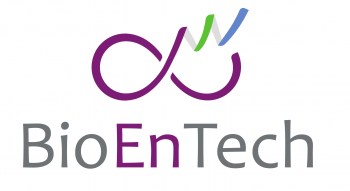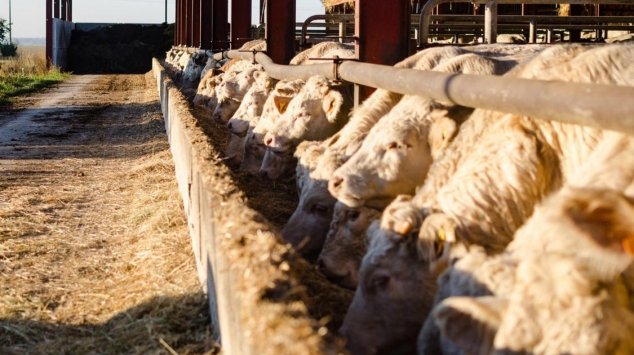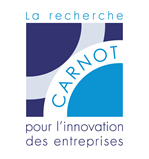Agrifood
En ea difficultate illae fallaciloquae, ut ait Accius, malitiae natae sunt. Varietates autem iniurasque fortunae facile veteres philosophorum praeceptis instituta vita superabat. Tum Triarius: Posthac quidem, inquit, audacius.
Carnot Institutes strongly involved
And also
Examples of partnerships with companies in the sector
A micro-lab that facilitates digester monitoring and makes local methanation more profitable
Carnot 3BCAR - BioEnTechTo react quickly to the changes in pH that inhibit biogas plants, BioEnTech – with help from Carnot 3BCAR – has developed a simple titration application that delivers autonomous and accurate analyses of key inhibitors. SNAC optimises oversight and performance of all manner of digesters, especially in smaller-sized facilities.
A micro-lab that facilitates digester monitoring and makes local methanation more profitable
To react quickly to the changes in pH that inhibit biogas plants, BioEnTech – with help from Carnot 3BCAR – has developed a simple titration application that delivers autonomous and accurate analyses of key inhibitors. SNAC optimises oversight and performance of all manner of digesters, especially in smaller-sized facilities.
Supporting Innovation
Methanation plants that generate biogas from organic matter (local waste) play a key role in responding to environmental imperatives. The big challenge here is maintaining a constant optimal output of biogas despite variability in inputs. Naturally occurring anaerobic bacteria digest the material, however their activity depends on the acidity of the environment. Excess ammonia or volatile fatty acids will alter reactions and reduce the output of biogas, hence the need to quantify them. Until now, the plant operator had to send samples to a laboratory and – at best – results came back 24 hours later. Now, after a mere 10 minutes of straightforward manipulation, the SNAC micro-lab can deliver an accurate analysis of the main digestion inhibitors in less than two hours. Moreover, because SNAC is a connected lab, the Memo supervision system monitors process efficiency and makes suggestions for improvements in system oversight.
The client needs
BioEnTech, a mid-sized company created in 2013, was born out of the key conviction that digitised waste water and waste management will reduce the environmental impact and provide enhanced resource management.
To boost the profitability of biogas plants, measuring inhibitors during the process is absolutely essential and BioEnTech makes this possible with SNAC. By monitoring digesters, this micro-laboratory provides a unique solution that is flexible, easy to use, responsive and accurate. It is the fruit of a partnership initiated in 2013 with LBE Carnot 3BCAR based around a three-year CIFRE PhD agreement to develop a quick and simple method of analysis, combined with advanced modelling of the chemical processes involved in the titration of ammonia and volatile fatty acid concentrations. These research findings have been published internationally and are protected by a European patent.
The affordability of this disruptive innovation makes it accessible to medium-sized facilities, thus opening up a new market for BioEnTech which has sold some forty SNAC units and built a monitoring assistance service offering around the interpretation of the analyser's data.
Partnership
Carnot 3BCAR Institute harnesses multi-disciplinary skills in biotechnologies and green chemistry to develop innovative business solutions in bioenergies, biomolecules and biosourced materials. In particular, Laboratoire de Biotechnologies de l’Environnement (LBE) researches ways of recycling residues, waste and organic effluents from human activities and biomass. It uses its expertise in the reactions involved in the decomposition of organic matter to develop methods and tools for modelling these processes. It also has experimental facilities and a prototyping workshop.
LBE was therefore especially well placed to supervise the CIFRE doctoral student and to partner BioEnTech prior to the launch of SNAC, which required three development phases: research, prototyping and production roll out. Two initial prototypes were used to successfully test the product on site.
The partnership is continuing with the aim of making it even easier and faster to measure the recycling potential of a batch of organic matter in a quick, reliable and reproducible manner using the results of IR-SCAN.
Malengé Packaging produces flexible packaging that meets the recyclability requirements that now apply in the agri-food industry
Partnership Carnot Institute PolyNat - Malengé PackagingDry foods can now be protected from light, oxygen and humidity by a really light and totally recyclable paper container made from virgin fibres, developed in partnership with CTP (Carnot PolyNat).
Malengé Packaging produces flexible packaging that meets the recyclability requirements that now apply in the agri-food industry
Dry foods can now be protected from light, oxygen and humidity by a really light and totally recyclable paper container made from virgin fibres, developed in partnership with CTP (Carnot PolyNat).
Supporting Innovation
Packaging has been identified as a major cause of pollution due to the difficulties inherent in sorting and recycling a complex product made from materials with very different life cycles. Under French EPR regulations, producers must design their packaging in a way that reduces its impact on the environment once it is processed as waste. Malengé Packaging’s commercial offering is made from a mono-material paper base with barrier properties conferred by functional printing processes. Optimal sealing and surface treatment properties reduce its weight by between 15% to 40% of equivalent-type packaging with a plastic or aluminium layer. The result is a container that is compatible with the paper recycling chain while affording excellent protection to products. Overall, the carbon footprint can be up to 60% smaller than existing solutions on the market.
The client needs
Malengé Packaging is a one hundred-year-old company based in the Hauts de France region of Northern France and specialising in offset printing. Since 2000, it has been harnessing its expertise to the emerging flexible packaging market, where it has become a reference, particularly for organic products, coffee and seeds. The company has invested in the search for a solution that would enable manufacturers to comply with their environmental commitments in terms of packaging. Malengé wishes to develop a flexible packaging offering that uses processes and materials from the paper industry. It is based on 100% recyclable barrier paper whose components must all be optimized to meet the imperatives of cutting down on both materials and weight. It was as part of a joint research lab (ANR-LAB3P), bringing together Malengé Packaging and the Pulp and Paper Research and Technical Centre (CTP), that these two long-standing partners made this project a reality by developing the Cycle Pack range, based around a material recognised as being recyclable by CEREC (French committee for evaluating the recyclability of paper-cardboard packaging). ANR-LAB3P was set up in 2016 and by 2018 it had already come up with a commercial product that met the requirements of a first customer. Cycle Pack is fully adapted to collection and recycling channels and it earned Malengé the Grand Prix Innovation prize at the Citeo Circular Challenge.
Partnership
PolyNat Carnot Institute seeks to create new bio-based materials and functional systems. As part of this research, CTP explores all of the innovation possibilities linked to the sustainable use of paper resources. It focuses on replacing multi-material solutions that use aluminium and polyethylene and are responsible for a major portion of materials wasted. CTP’s contribution was decisive for selecting ecological barrier components and for using functional printing, which provides the barrier properties by depositing optimal quantities only in the areas concerned. Its expertise in this domain initially made it possible to come up with a light, printable and heat-sealable paper, compatible with standard machines, and 100% recyclable. It was first used to store a powder flan, thoroughly insulated from light, water vapour and grease. The partnership is continuing apace and all of Malengé's teams are on board. The company will be able to expand its product range and the range of barrier properties it can offer its customers. Thanks to increasing demand, Malengé is already adding production capacity and expanding its workforce.
A new process for the marking of glass packaging and forgeries protection
Partnership Chimie Balard Cirimat Carnot Institute - AthéorAthéor-owned innovative Glass’in® process is being marketed thanks to a partnership with the Chimie Balard Cirimat Carnot Institute.
A new process for the marking of glass packaging and forgeries protection
Supporting Innovation
Glass’in® patented ink is a dedicated technology for the marking of glass packaging for companies active in the cosmetic, food-processing, motor vehicle and pharmaceutical industries. The glass marking technology prevents glass weakness, while avoiding any changes in continuous production lines. The authentication solution expert provides either visible or invisible inkjet printing devices, including with decorative effects, when illuminated by UV beam. The designed optical scanner enables the reading of a unique hidden identifier. The marking is fully tamper-proof, solvent-resistant and readable regardless of the supporting element colour.
The client needs
Athéor was actively looking for a cost-reducing process technology in terms of glass marking. Making traceability and measures to combat counterfeiting more accessible both economically and technically provides the Montpellier-based start-up with extreme competitive advantage. In 2015 Athéor signed an agreement for the marking of 20 million bottles of Champagne.
Partnership
The Chimie-Balard Cirimat Carnot Institute as of 2010 has participated in the design and development of the ink composition comprised of colourants and optoelectronic components. Researchers with expertise in molecular architecture and nanostructured materials were vital to the success of a new regional project in full compliance with the Charter of the Carnot Institutes.




